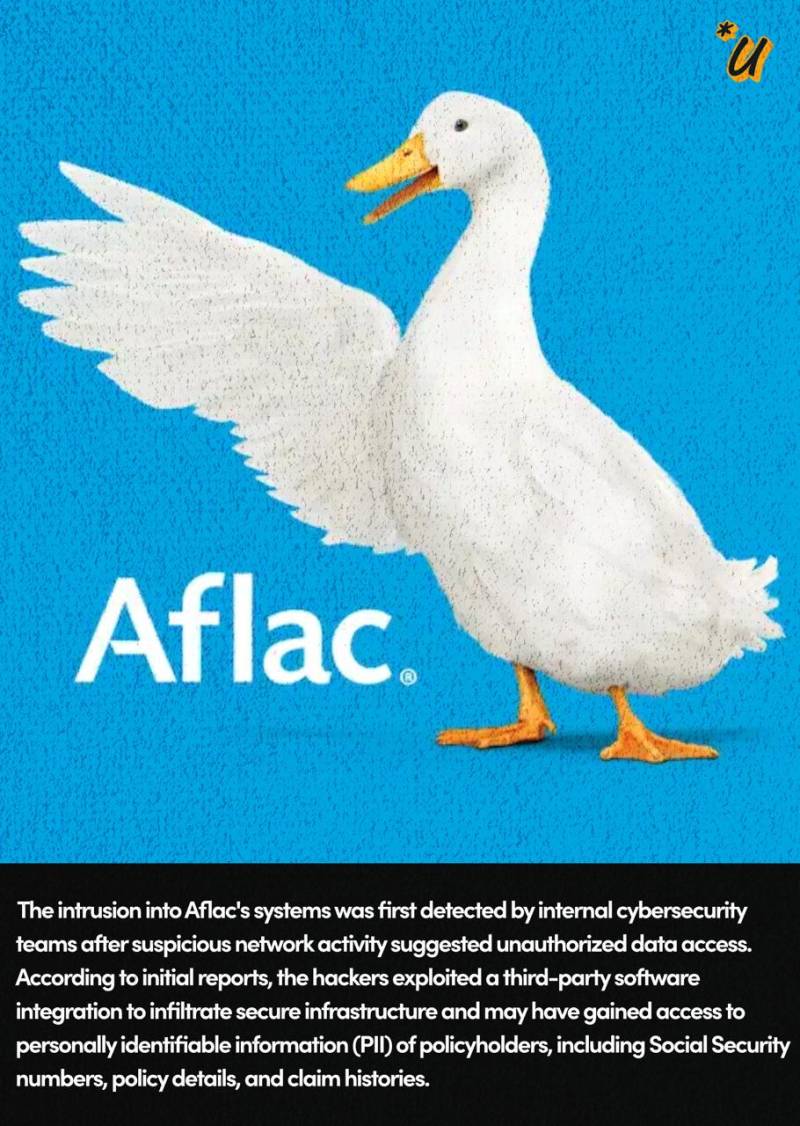Cybercriminals have struck again — this time breaching Aflac, one of the largest providers of supplemental insurance in the U.S., in a widening wave of targeted attacks against the American insurance industry. The breach, confirmed in June 2025, is part of a coordinated cyber spree affecting several major insurance carriers, raising alarms about the growing vulnerability of sensitive customer data in one of the most trusted financial sectors. The intrusion into Aflac's systems was first detected by internal cybersecurity teams after suspicious network activity suggested unauthorized data access. According to initial reports, the hackers exploited a third-party software integration to infiltrate secure infrastructure and may have gained access to personally identifiable information (PII) of policyholders, including Social Security numbers, policy details, and claim histories.

Reda Also: Perplexity - The AI Startup Sparking Meta & Apple Interest

Though Aflac says it has contained the breach and launched a full-scale forensic investigation, the extent of the data compromised remains under review. The company has also begun notifying potentially affected customers and regulatory bodies, promising transparency and swift remediation.
This incident is only one part of a broader crisis. In the past two months, at least four other major insurers — including MetLife, Prudential, and Cigna — have also reported cybersecurity incidents, some involving ransomware. Experts believe the attacks are being orchestrated by a sophisticated cybercrime group known as Black Swan, which is reportedly targeting high-value insurance firms to exfiltrate sensitive data and demand massive ransoms. The insurance industry is an especially lucrative target for cybercriminals. Insurers collect vast amounts of highly sensitive customer information — from health records to payment details — making them prime candidates for data extortion schemes and identity theft operations. As a result, even a single breach can have devastating long-term consequences, not just financially but also reputationally.
Aflac, headquartered in Columbus, Georgia, is now working with federal agencies, including the FBI and the Cybersecurity and Infrastructure Security Agency (CISA), to trace the source of the breach and shore up its defenses. Meanwhile, the incident has reignited debate about the adequacy of cybersecurity frameworks within financial institutions, especially amid growing digital transformation in insurance services. Analysts note that many insurers rely heavily on legacy systems that aren’t equipped to handle modern cyberthreats, making them easy prey for advanced persistent threat (APT) actors. Others point to third-party software vendors as the weak links that often grant backdoor access to malicious actors — a trend that was seen in the infamous SolarWinds and MOVEit breaches.
What makes this breach even more critical is its timing. Aflac has been aggressively expanding its digital products and telehealth-related services, making its platforms more interconnected — and therefore more vulnerable. Cybersecurity professionals are calling on all insurance providers to prioritize real-time monitoring, zero-trust architecture, and frequent penetration testing to prevent future disasters. In a recent statement, Aflac’s CEO vowed to “strengthen our cybersecurity posture and rebuild trust with our customers,” adding that affected individuals would receive identity protection services and credit monitoring for free. The Aflac cyberattack serves as a stark reminder that digital convenience comes with digital risk, and in the evolving cyberwar landscape, no sector is immune. For a breakdown of how the breach occurred and what it means for consumers and the insurance industry.



